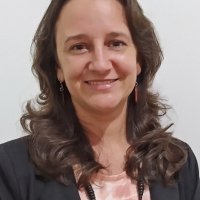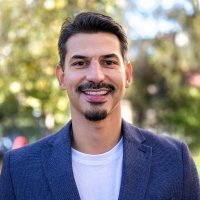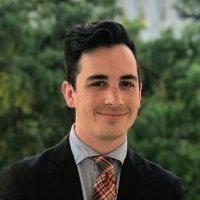WEBCAST: Deforestation in the Time of COVID-19
Cosponsored by Wilson Center’s China Environment Forum, Brazil Institute, Latin America Program and Environmental Change and Security Program
The production of agricultural commodities is the main driver of deforestation around the world. While COVID-19 has brought much in the world to a standstill, the pandemic has served to accelerate commodity-driven deforestation. The problem is particularly severe in Brazil where a weakening of law enforcement and continued international demand for agricultural commodities, led by China, the EU, and the United States, are driving the rapid destruction of the Amazon rainforest.
Speakers will give short presentations followed by Q&A. Paula Bernasconi from Instituto Centro de Vida (ICV) will talk about the skyrocketing deforestation from soy and beef production in the Brazilian state of Mato Grosso. André Vasconcelos of Global Canopy will introduce a deforestation risk assessment tool and explore links between deforestation and trade with the EU and China. Rick Jacobsen (Environmental Investigation Agency) will discuss U.S. imports of agricultural products associated with deforestation and provide an overview of policy and regulatory responses in consumer markets. Kevin Stockert from U.S. Representative Blumenauer’s office will discuss legislative measures Congress is developing to address the role of trade in driving deforestation. Giuliana Torta (EU Delegation to the U.S.) will provide updates on processes underway in the EU to establish new policies and regulation to reduce the bloc's deforestation footprint.
Speakers:
Paula Bernasconi, Instituto Centro de Vida (ICV)
André Vasconcelos, Global Canopy/TRASE Initiative
Rick Jacobsen, Environmental Investigation Agency (EIA)
Kevin Stockert, U.S. Representative Blumenauer’s office
Giuliana Torta, EU Delegation to the U.S.
We would still like to promote engagement with this topic. Please direct audience questions to the official CEF Twitter account or to Clare.Auld-Brokish@wilsoncenter.org and they will be relayed to our speakers. Answers will be posted on the CEF Twitter and Facebook accounts.
Selected Quotes
Paula Bernasconi
“According to Global First Watch, emissions from tropical deforestation are equivalent to the annual emissions of 400 million cars and if tropical deforestation were a country, it would be the third biggest emitter globally, ranking just below the US and even higher than the whole European Union.”
“Society knows what needs to be done [to stop deforestation] and it has been done before in the past by Brazil, but what we see is a clear lack of political will.”
“Big deforestation [events] are only possible to perform with high investment and also a certainty of impunity, so it’s clearly part of a business investment of capitalizing farmers, it’s not at all small farmers and indigenous people.”
“The best policy or commitment for any market or company. . . is zero deforestation, not zero illegal deforestation.”
“Because of [a small concentration of farmers], retailers are threatening to boycott Brazilian products and some of the world’s biggest investment funds are on the verge of divesting from Brazil. If it happens it could intensify the current economic crisis and threaten jobs, aggravating the country’s inequality and poverty. So we need to act.”
André Vasconcelos
“Of all the [soy] exports from Brazil. . . to China, [the Matopiba region] accounted for 9 percent of the volume, but it corresponds [to] 80 percent of the deforestation risk. So the risk is highly concentrated in particular places.”
“I wanted to highlight the importance of the consumer markets in this journey towards a more sustainable supply chain and for that we need a collaborative effort from consumer markets from the buyers together with the producing countries to address this complex problem.”
“The concentration of the risk. . . actually provides an opportunity for the global markets, for the buyers, to start addressing this problem. . . So targeting action in these high-risk areas, engaging with the companies that are handling most of the commodities, we can then drive a huge impact.”
Rick Jacobsen
“As we’ve seen, the EU, U.S., and China are major importers of agricultural commodities and products linked to deforestation. But, there are a lot of other countries involved as well. So we need to see leadership from these markets, but we also need to harness that towards… global rules for legal and sustainable trade.”
“We’ve seen that voluntary corporate policies and certifications schemes developed over the last decade have just simply not been enough by themselves to reduce deforestation and address human rights that may be associated with human rights abuses.”
“One thing that’s very important is traceability. Ensuring that companies know where they source is… the prerequisite for any improvement in supply chains and sourcing. And the traceability information should be reported. Others need to know about that, and enforcement officials in particular need to know about that in order to prioritize and monitor the situation.”
Kevin Stockert
“In the 116th Congress, there is renewed interest in deforestation. Members and senators have taken notice of large companies like McDonalds and Unilever pledging to eliminate deforestation from their supply chains. However, several reports from the NGO community have shown that these companies have fallen behind on their pledges. Importantly, other governments like the EU and the UK are on the verge of acting.”
“Congressman Blumenauer, my boss, is working with Senator Brian Schatz, who represents Hawaii, on a legislative approach. We’re noticing increased public awareness about the impacts of palm oil, beef, soy, and other commodities on habitat, indigenous land, and the climate. We’re also working to monitor the zero deforestation pledges of many companies. And we have a desire to buttress these efforts with legislation.”
“We’re concerned that goods produced in only deforested lands and imported into the United States create a market issue for U.S. commodities. . . Last year, our offices began work with the NGO community to understand the scope of this issue.”
Giuliana Torta
“The good news is that in the EU now environmental policies and the supply chains as well are at the center of attention. They are a top priority. They are very much part of the European Green Deal.”
“We have been discussing deforestation since the Sixties. . . We have to do something. We have to pool resources and we have to try to collaborate in a way that delivers. And we [have to] find a solution to this incredibly complex problem.”
“It’s not a matter any more to say let’s leave it to the voluntary schemes and to the voluntary action of the corporations. In Europe, we see that a number of multinationals and corporations come to us, come to the lawmakers asking to level the playing field. So it’s not just a matter of the red tape imposed by a federal or a European entity. It’s something that is coming from people that are really very careful about what’s happening on the markets and they don’t want to have to spend money if it is not worth it.”
Speakers





Moderator

Hosted By

China Environment Forum
China’s global footprint isn’t just an economic one, it’s an environmental one. From BRI investments in Africa and Asia to its growing presence in Latin America, understanding China’s motivations, who stands to gain - and who stands to lose - is critical to informing smart US foreign policy. Read more


Brazil Institute
The Brazil Institute—the only country-specific policy institution focused on Brazil in Washington—aims to deepen understanding of Brazil’s complex landscape and strengthen relations between Brazilian and US institutions across all sectors. Read more


Latin America Program
The Wilson Center’s prestigious Latin America Program provides non-partisan expertise to a broad community of decision makers in the United States and Latin America on critical policy issues facing the Hemisphere. The Program provides insightful and actionable research for policymakers, private sector leaders, journalists, and public intellectuals in the United States and Latin America. To bridge the gap between scholarship and policy action, it fosters new inquiry, sponsors high-level public and private meetings among multiple stakeholders, and explores policy options to improve outcomes for citizens throughout the Americas. Drawing on the Wilson Center’s strength as the nation’s key non-partisan policy forum, the Program serves as a trusted source of analysis and a vital point of contact between the worlds of scholarship and action. Read more


Environmental Change and Security Program
The Environmental Change and Security Program (ECSP) explores the connections between environmental change, health, and population dynamics and their links to conflict, human insecurity, and foreign policy. Read more
